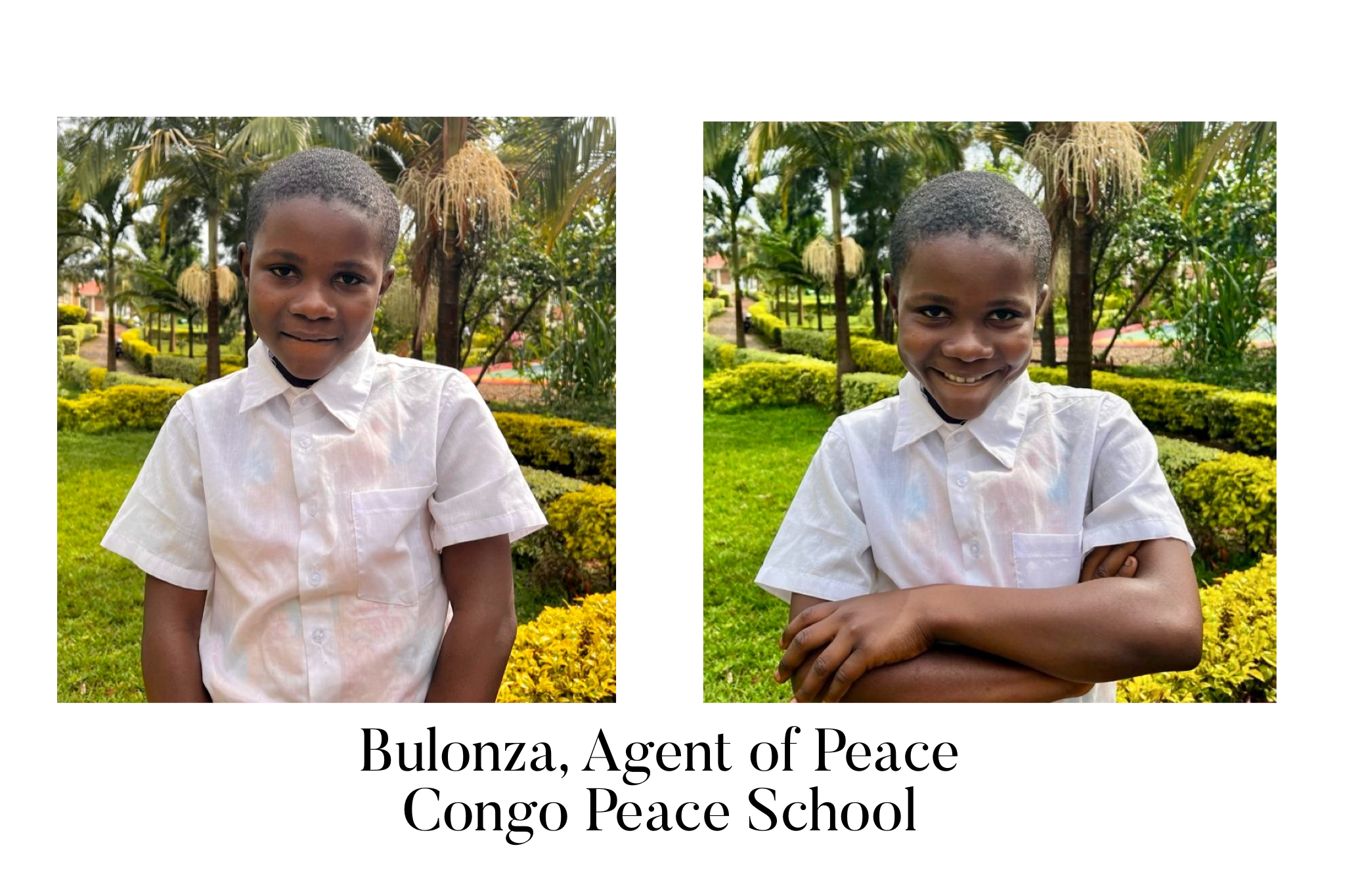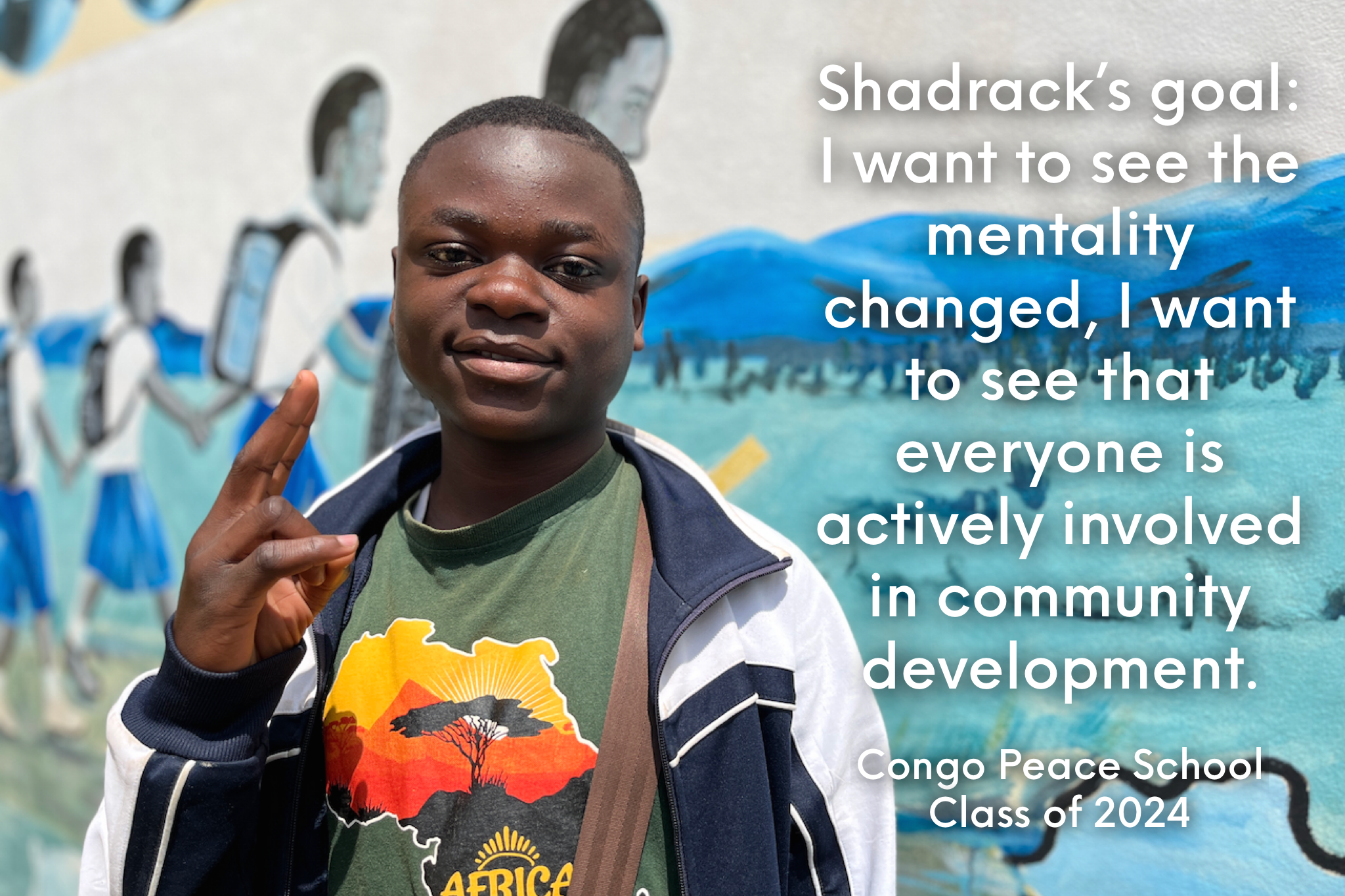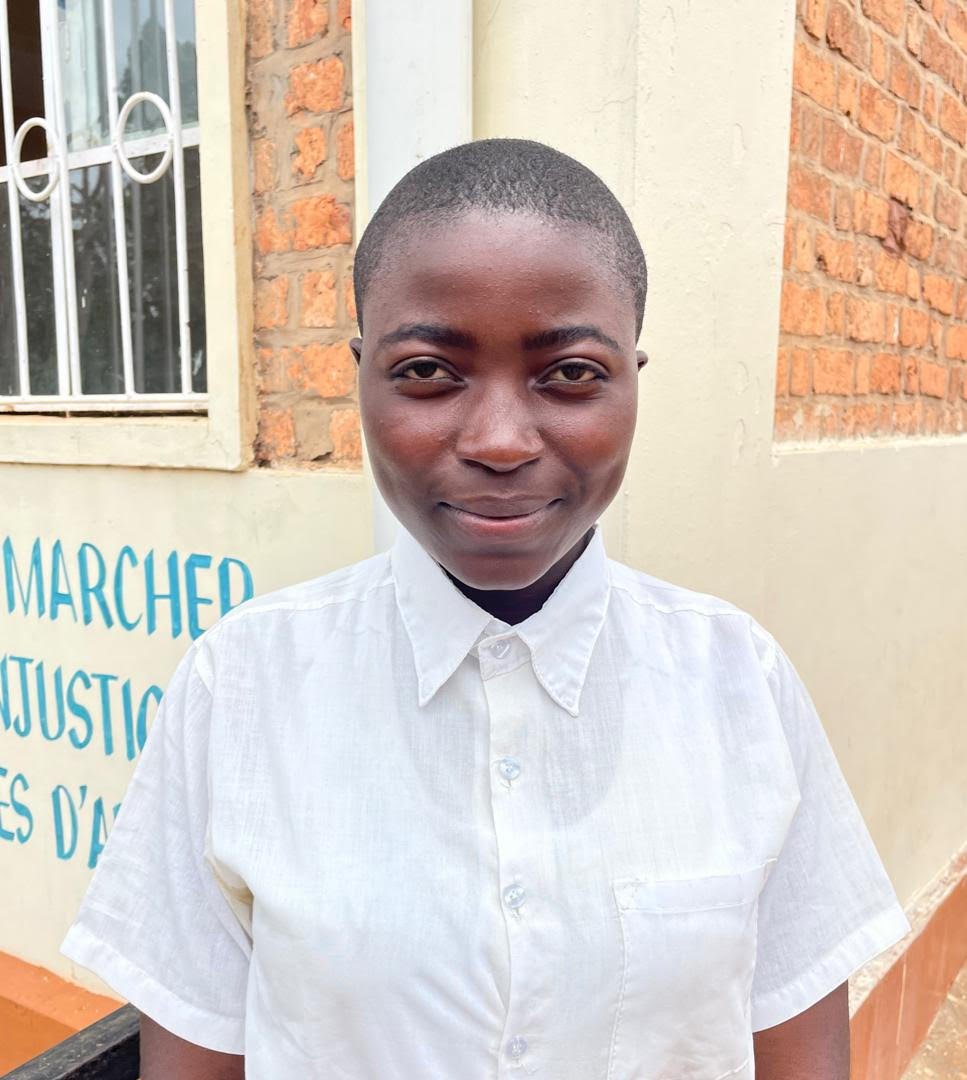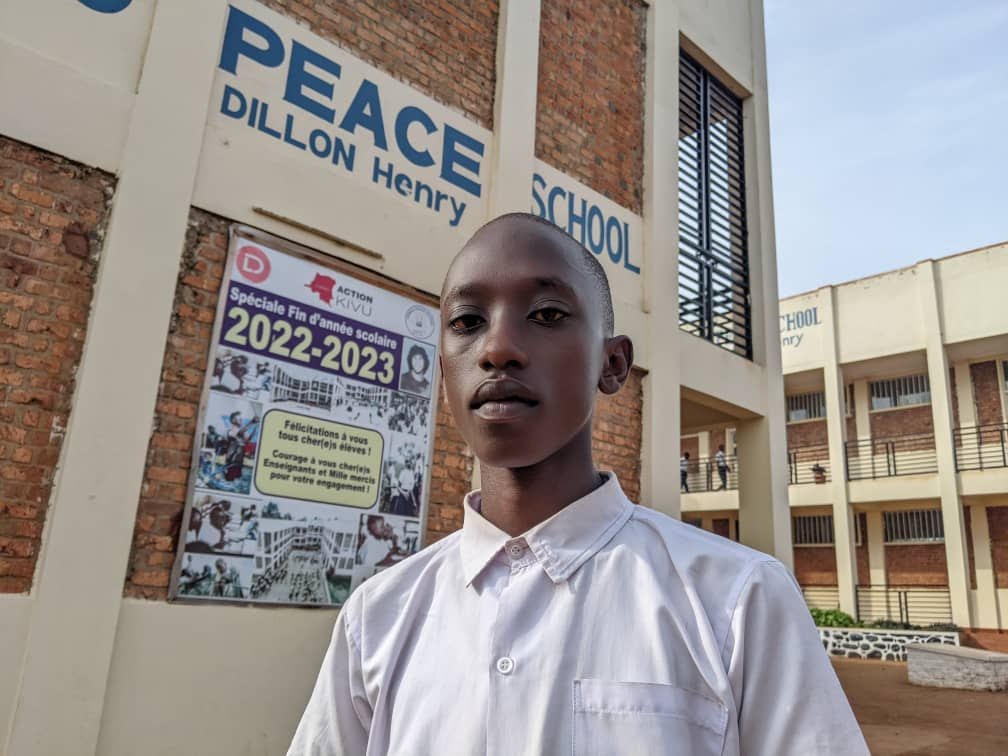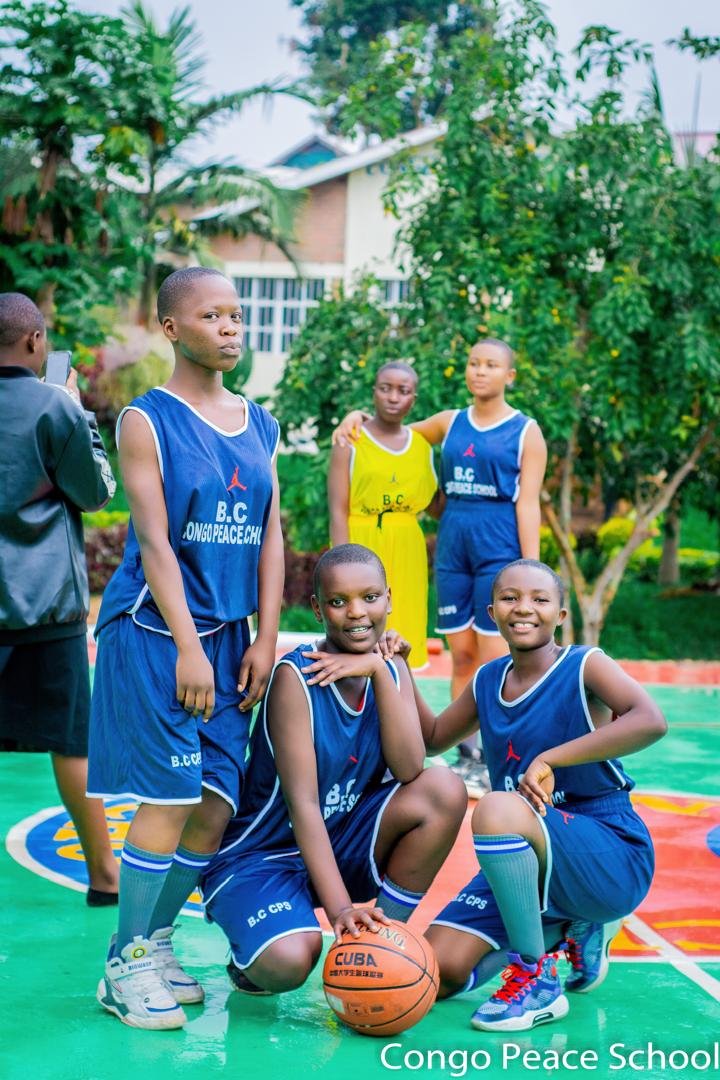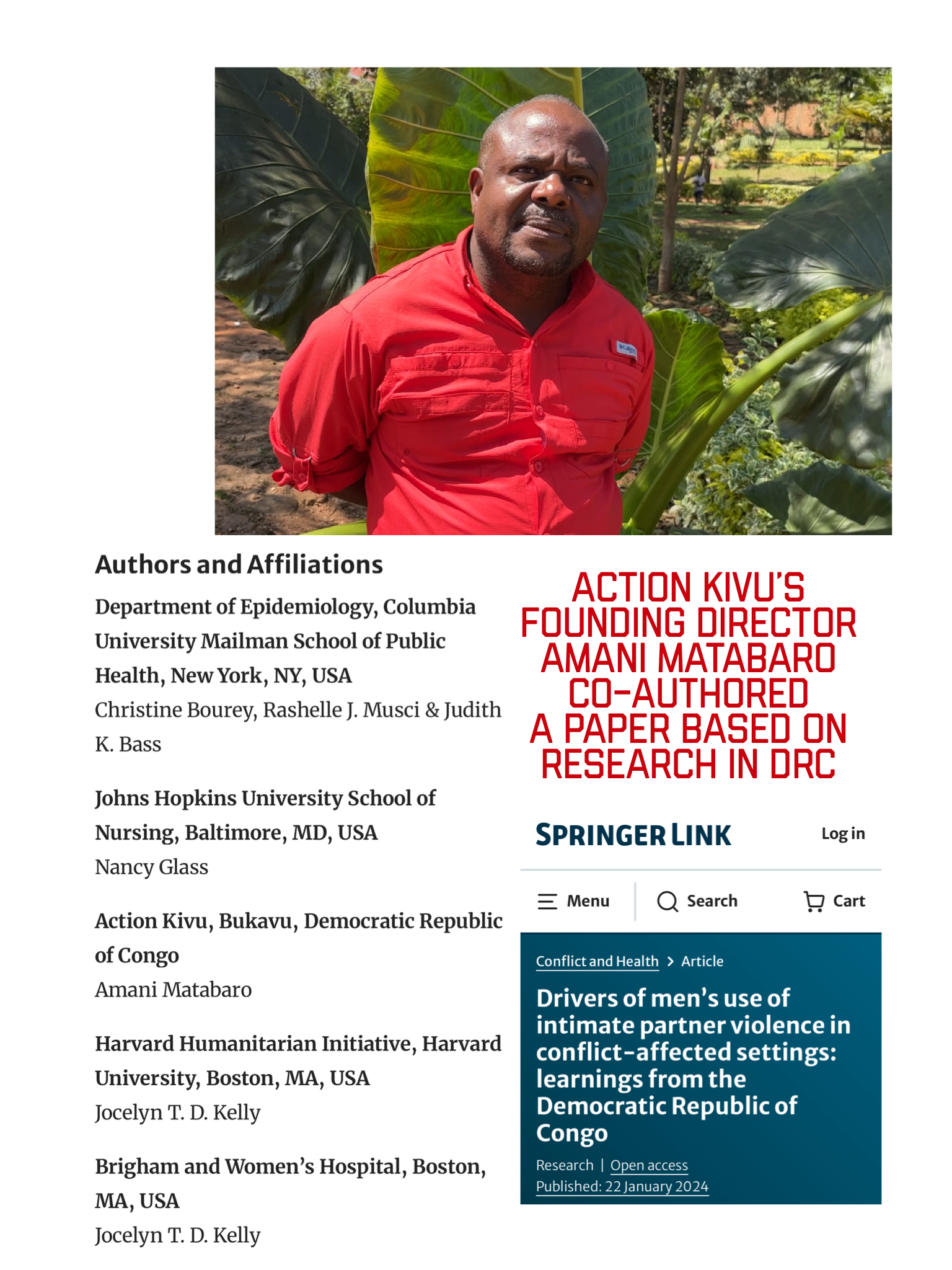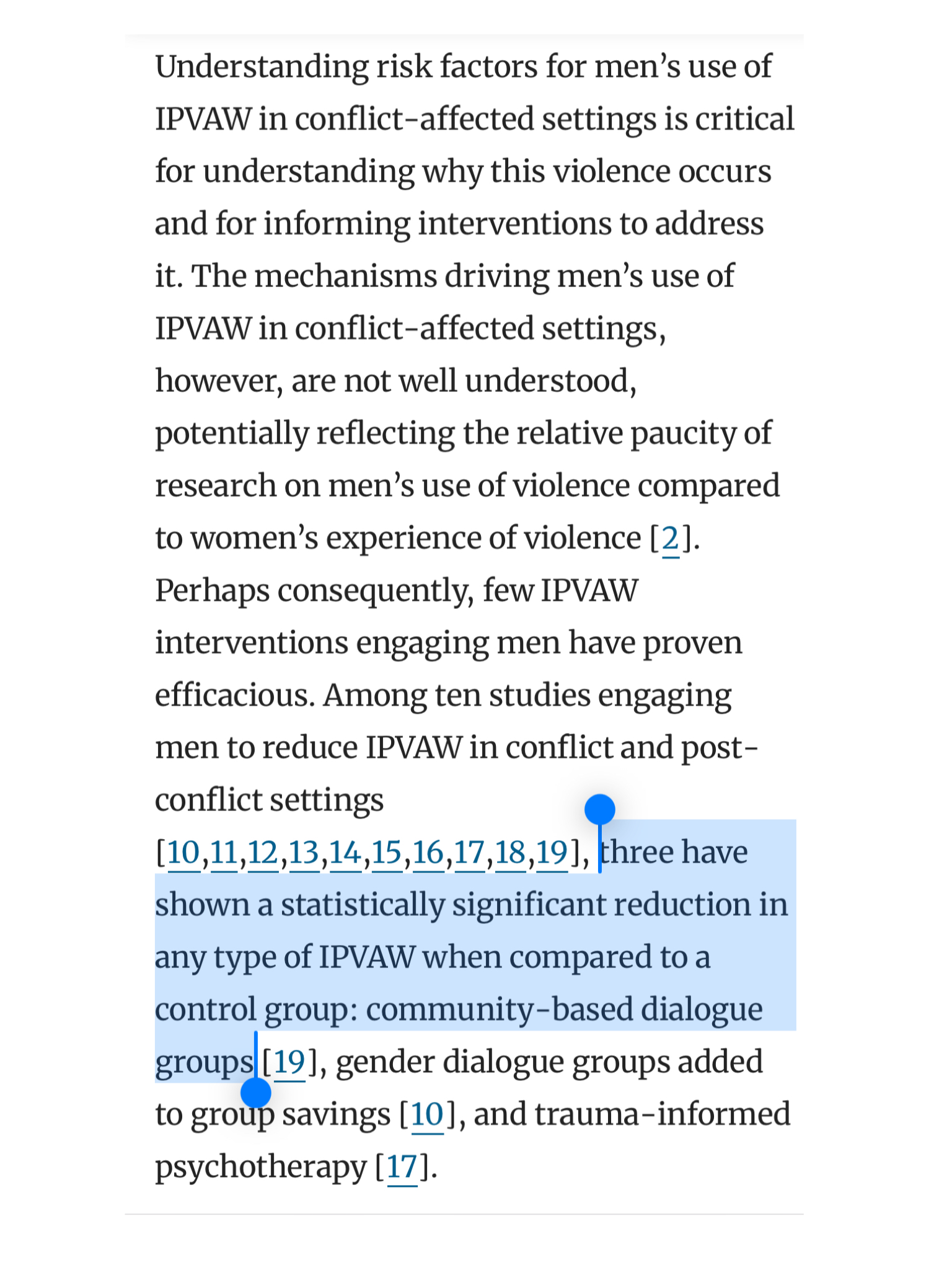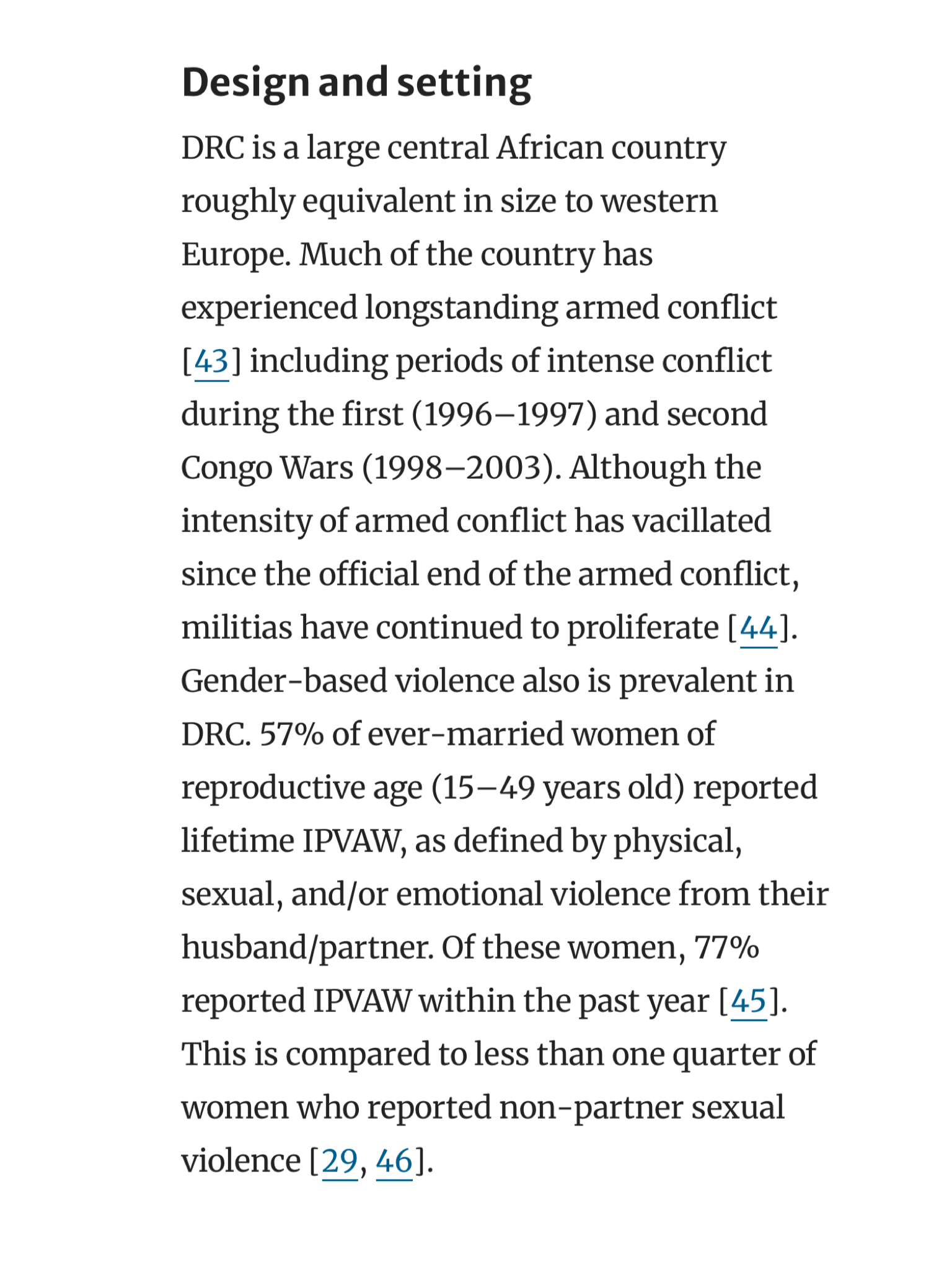“When wishing someone good luck in French, you may have heard the phrase ‘bon courage !’ Other times, you’ve heard ‘bonne chance !’ While both of these phrases indeed mean “good luck,” there are some important differences between them that you should know before sending someone off with your best wishes in French. The main difference between these two phrases is the amount of influence the person has over what awaits them. In other words, it comes down to whether they have some power over the situation, or whether they are reliant on luck itself.
…You’ll use bon courage when wishing someone luck as they embark on a task that will be hard work, but that they are fully capable of doing. It indicates that you believe this person can accomplish the task in question, but that their success is dependent on their effort.”
(lingoculture.com)
As the Congo Peace School welcomed back its students for a new year in September, the teachers and staff had prepared to teach principle one of nonviolence: Nonviolence Is a Way of Life for Courageous People.
It is not a method for cowards; it does resist.
It is active nonviolent resistance to evil.
It is aggressive spiritually, mentally, and emotionally.
The teachers asked the students to envision a future goal or event that feels out of reach for them, and then discussed with each other the courage and hard work it will take to achieve that goal.
For Iragi, a 17 year old in the 5th grade of secondary school (a high school junior in the U.S. system,) her first thought was about her country. Congo is in the midst of war once again. Iragi shared that, “during the first month of school, we discussed courage as the key force for being nonviolence upstanders. I was asked to think of something I never thought I could ever achieve in my life, but instead of giving up, to keep working on it. One thing for me is to work for change in my country. Sometimes you think it’s impossible, but I just learned that with courage, anything is possible! This school year, I am determined to do and embrace everything with courage.”
Bulonza, who is 11 years old and in the 6th grade of elementary school, shared that “with courage we can achieve anything. Our teachers explained that without courage we cannot expect change in life, and that our country needs courageous youth to change the situation. I am happy learning about courage because I have to be courageous in my life to achieve my goals.”
Kabwana, Bulonza’s classmate who is also 11 years old, shared that “being courageous is the most important thing to do in life. I’ve decided to be courageous, to never be afraid to try things even when they are difficult.”
Bahati is 15, and in the 2nd grade of secondary school: “We were taught that it takes courage to continue to work towards a goal until it happens. I understand clearly how courage can move mountains. It’s wonderful to have the nonviolence season campaign subjects on our school wall.”
Over the summer, the school hired an artist to paint welcoming messages and illustrate the principles and tenets of nonviolence on one of the walls of the school.
The summer was a busy time at the school, not only with the teachers preparing for the new year, but students visiting to use the computer lab, to read books in the library, and to play on the newly built basketball court.
Iragi shared, “As summer ended, I was excited mostly about learning more skills in computer science and practicing on computers with my classmates. I’ve realized the computer is for more than typing, you can do anything with your computer and with the internet, you can connect with the rest of the world and work from anywhere. Amazing. Our school is unique to be a space where we learn these things. I also wanted school to open again because during school period, we learn a lot from our interactions with our schoolmates and teachers. This first month of school has been so great because we are getting to know some of our new teachers, I mostly like knowing the different roles of a social assistant at community level in community reconstruction initiatives. I like a class on Social Action Methods and how social assistants can play key roles in leading social actions.”
Ciza Sadaka: 20 years old, 5th grade of secondary school “The summer break was a time of hard work on the farm in my family. I live with my stepmother, and I have no choice about work [when I’m not in school] most of the time I have to work hard. I was working with her to cultivate and prepare the soil to grow beans as soon as rainy season began, which unfortunately was delayed one month because of climate change. The one or two days I was not going to work on the farm, I took the opportunity to the Congo Peace School, to play, learn, and eat a meal and those were the moments I was happy. I was excited to return to school to spend time with my classmates and discuss things with them, play soccer and basketball with them, meet our new teachers, learn new materials, eat good food at the school cafeteria, and go to the library and read new books.
Kabwana: “The first months of school have been very interesting for me, especially learning mathematics and getting new books in the library and being encouraged to read them. Being in the computer lab and sitting down in front of a computer has been most exciting for me, especially since we are the only school [in the area] where that is possible. The Copa De Dillon* in October makes me feel very happy as it brings so many people together.
Female players at the Copa de Dillon
Male players at the Copa de Dillon
*Copa De Dillon is the annual soccer tournament the Congo Peace School hosts in honor of Dillon Henry, the namesake of the foundation and our founding partner in the CPS.
Bahati “During the summer break, my mom kept me very busy as we had to go to do some farm work together, almost every day. When I had any free time, I walked to the school to read and play basketball. As summer ended, I was mostly looking forward to seeing my classmates again and of course eating at the school, as well as being able to learn more about computer skills. These first months of school have been great for me, reunited with my friends. Being able to go back to the library any time I want makes me feel so happy, and having new books sent to our library!
“My favorite class thus far is geography, especially when our teacher talks about climate change and global warming. I realize it’s true because the rainy season has just started in October whereas most of the time September is known as the beginning of the rainy season. I really like the Copa De Dillon, the soccer tournament brings so much joy as all the different schools’ students and people in the community come together.
These students face so many challenges that many of us cannot imagine, from armed conflict to lack of food or safety at home. They are showing up for themselves and each other with great courage and hope that their actions will make a difference.
You are showing up for them with courage, and we are grateful. With your help, we are all investing in their present – a safe and encouraging space for them to learn, play, and explore what it means to be agents of peace.
Thank you for your partnership in courage and hope for a more peace-filled future. Please help us grow our family of supporters by sharing these stories! If you are planning a year end gift, please read more about the impact of your giving and how to donate here.



